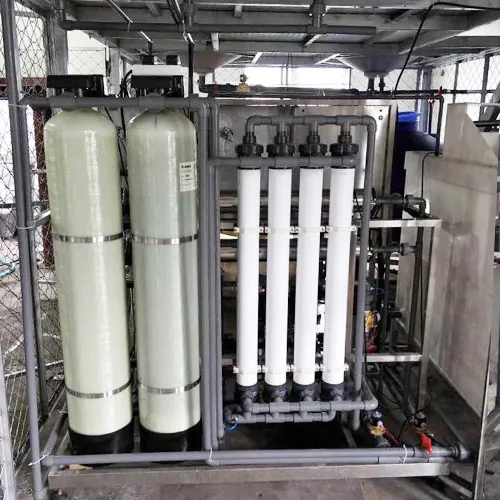loading...
- No. 9, Xingyuan South Street, Dongwaihuan Road, Zaoqiang County, Hengshui, Hebei, China
- admin@zjcomposites.com
- +86 15097380338
- Welcome to visit our website!
ro frp vessel
Understanding the Role of FRP Vessels in Modern Industry
Fiber Reinforced Polymer (FRP) vessels have carved out a significant niche in various sectors due to their outstanding performance characteristics. As industries evolve and seek more efficient, durable, and cost-effective materials, FRP has emerged as a viable alternative to traditional materials like steel and concrete.
What are FRP Vessels?
FRP vessels are containers made from a composite material consisting of a polymer matrix reinforced with fibers. The reinforcement can be obtained from materials such as glass, carbon, or aramid. This combination provides several advantageous properties, including high strength-to-weight ratio, resistance to corrosion, and excellent thermal and electrical insulating capabilities. These properties make FRP an optimal choice for storing a wide range of substances, from chemicals to food products.
Advantages of FRP Vessels
1. Corrosion Resistance One of the most significant advantages of FRP vessels is their resistance to chemical corrosion. In industries where aggressive substances are handled, such as chemical manufacturing and wastewater treatment, FRP vessels can outperform traditional materials that are prone to rust and degradation.
2. Lightweight Yet Strong Compared to steel, FRP vessels are considerably lighter, which simplifies transportation and installation. Despite their lightweight nature, they exhibit high strength, allowing them to handle pressure and environmental stress without compromising integrity.
3. Thermal Insulation The thermal properties of FRP materials offer advantages in industries where temperature control is crucial. Their insulating capabilities help maintain the desired temperature of stored contents, minimizing energy consumption.
ro frp vessel

4. Design Flexibility FRP vessels can be manufactured in various shapes and sizes, accommodating specific industry requirements. This design flexibility enables manufacturers to create customized solutions for unique applications.
5. Cost-Effectiveness While the initial investment for FRP vessels may be higher than that for traditional materials, the long-term savings in maintenance and replacement costs highlight their cost-effectiveness. The durability and longevity of FRP materials can lead to lower total operational costs over time.
Applications of FRP Vessels
FRP vessels are utilized in a multitude of applications across different sectors. In the chemical industry, they are often used for storage tanks, piping systems, and pressure vessels. Their resistance to corrosion and chemical attack makes them ideal for safely handling hazardous materials.
In the water treatment sector, FRP is employed for tanks and vessels that store and treat water, ensuring that contaminants do not compromise the water supply. Additionally, in the food industry, these vessels are used for bulk storage of ingredients, ensuring hygiene and preventing contamination from other materials.
Conclusion
As technology advances and industries continue to seek innovative solutions, FRP vessels represent a crucial development in material science. Their exceptional properties, including corrosion resistance, lightweight structure, thermal insulating capabilities, and design flexibility, make them invaluable across various fields. While challenges exist, such as initial cost and the need for specialized manufacturing techniques, the benefits of FRP vessels often outweigh these drawbacks. This positions them as a critical component in the evolving landscape of modern industry, promising to enhance efficiency and sustainability in operations around the globe. As research and technology progress, the potential applications of FRP vessels are expected to expand, paving the way for further innovations in material use and design.
-
The Rise of FRP Profiles: Strong, Lightweight, and Built to LastNewsJul.14,2025
-
SMC Panel Tanks: A Modern Water Storage Solution for All EnvironmentsNewsJul.14,2025
-
GRP Grating: A Modern Solution for Safe and Durable Access SystemsNewsJul.14,2025
-
Galvanized Steel Water Tanks: Durable, Reliable, and Ready for UseNewsJul.14,2025
-
FRP Mini Mesh Grating: The Safer, Smarter Flooring SolutionNewsJul.14,2025
-
Exploring FRP Vessels: Durable Solutions for Modern Fluid HandlingNewsJul.14,2025
-
GRP Structures: The Future of Lightweight, High-Performance EngineeringNewsJun.20,2025
